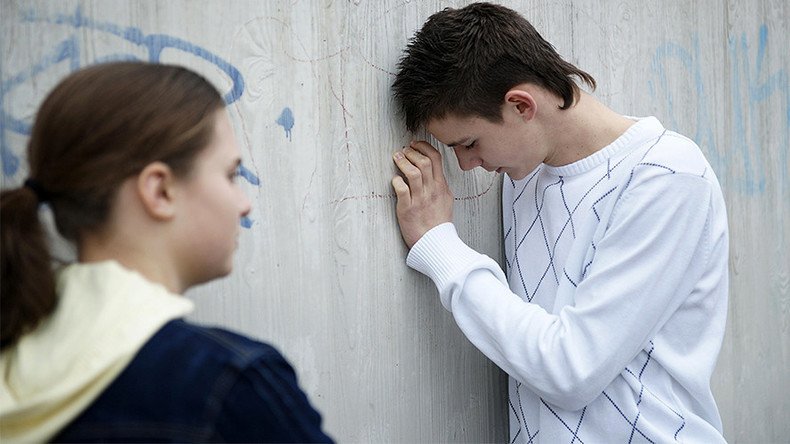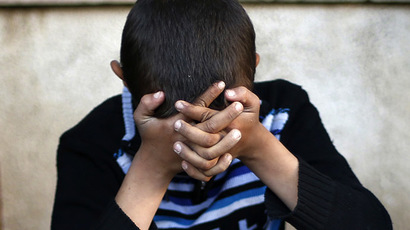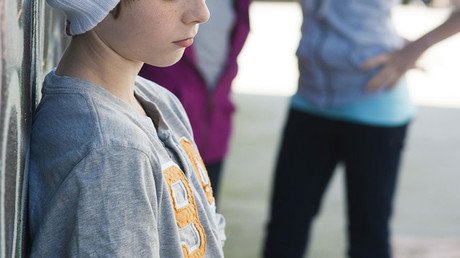British police & schools issue warning over 'Blue Whale' social media ‘suicide game’

A number of local police forces and schools have issued warnings to parents over a social media game called ‘Blue Whale’ that originated in Russia and has been linked to a number of teen suicides.
There is no indication of whether the suicide game has actually been picked up by any teenagers in Britain.
Nevertheless, a number of British police forces and schools cautioned parents to monitor their children’s use of social media to prevent the spread of the game.
Hertfordshire Police Constabulary advised local parents "to be vigilant and monitor children's internet usage," the BBC’s Newsbeat reports.
Similarly, a spokesperson from Devon and Cornwall Police Force posted on Twitter:
“Who ever created this horrible game is sick!
“Parents: Please be aware of this ‘game’ talk to your children about it if concerned.”
Woodlands School in Essex, which was informed about the suicide game by the local police authorities, sent parents a letter explaining the Blue Whale game and the risks involved, in an effort to prevent the spread of suicidal practices among schoolchildren.
"There's no evidence to say anything untoward is going on with the Blue Whale challenge in our school, but we feel it's best to keep parents and carers informed," deputy principal David Wright told Newsbeat.
"We [want to] make sure they can help us. We've all got a duty of care for our young people."
The Blue Whale challenge allegedly involves vulnerable teenagers being contacted by the game’s ‘curator’ on social media and provoked into completing a number of tasks over the course of 50 days.
Apparently there's this game called blue whale that challenges you to self harm and kill yourself. That's a whole other level fucked up
— Marina ☽ (@peachietaes) April 28, 2017
These involve watching horror videos all day, cutting all relationships with family and friends, and various forms of self-harm that must be filmed and sent to the curator for confirmation that the challenge is completed.
The game supposedly culminates in supervisors asking participants to commit suicide.
Teens were also threatened if they refused to comply with the requests, as their curators use IP trackers to identify where the victims actually live.
It is unclear whether Blue Whale is just an urban legend or an actual suicide game promoted by death cults on social media.
The challenge was indirectly linked to the suicide of three teenagers in Russia, when Veronika Volkova, 16, and Yulia Konstantinova, 15, jumped to their deaths from the roof of an apartment, while Renata Kambolina, 16, died by placing her head on a railway line.
Shortly before her death, Konstantinova published a picture of a blue whale on a Russian social platform.
An administrator of the group, which allegedly came up with and then actively promoted the challenge, was recently arrested on suspicion of encouraging suicide.
Speaking to Russian investigators, the defendant said that he “was filtering the bio-garbage.”
“A normal person would not commit suicide, but if they are not right in the head it is better [that they kill themselves] now rather than taking the wheel of the lorry- realizing that their life is sh*t – and crashing into scores of people,” he told Russian police.
There are reports of the game spreading further to Europe.
The Daily Mail reports that a Spanish teenager was recently hospitalised allegedly after participating in the Blue Whale challenge.
If you are contemplating suicide, RT UK urges you to seek help from one of the following services:
Samaritans (116 123) operates a 24-hour service available every day of the year. If you’d prefer to write how you are feeling, or are worried about being overheard on the phone, you can email Samaritans at jo@samaritans.org.
Childline (0800 1111) runs a helpline for children and young people in the UK. Calls are free and the number won't show up on your phone bill.
PAPYRUS (0800 068 41 41) is a voluntary organization supporting teenagers and young adults who are feeling suicidal.
Depression Alliance is a charity for people with depression. It doesn't have a helpline, but offers a wide range of useful resources and links to other relevant information.
Students Against Depression is a website for students who are depressed, have a low mood or are having suicidal thoughts.
Bullying UK is a website for both children and adults affected by bullying.














